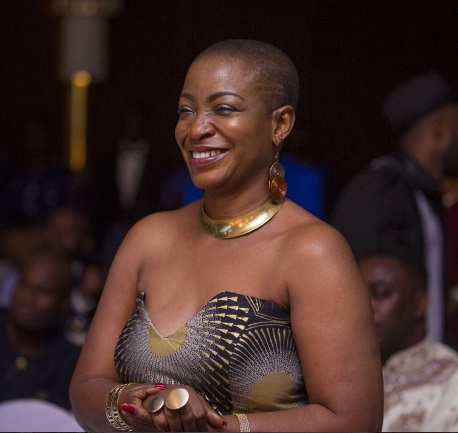From hot tailors to haunted homes: Six of the best African films of 2022
At the heart of many of the best African films out there currently is the idea of return. Return to something, someone, or somewhere. In some films, this return is to the obvious: a place called home. In others, it is thornier and intangible. These stories are drawn from cultures across the continent, but they also make for interesting connections around the world.
Here are six incredible recently released African films you must see. They are all showing at the Film Africa festival in London 28 October to 6 November. They all also happen to have been directed by women.
The Blue Caftan (Morocco, France, Belgium, Denmark)
A confident achievement, Maryam Touzani’s sophomore feature film is a radical reinterpretation of love and family, presented with tenderness. Using the traditional marriage of a middle-aged couple as a non-threatening starting point, Touzani pokes holes at the hypocrisies that define conservative societies.
When a closeted queer tailor, Halim (Saleh Bakri), and his loving wife, Mina (Lubna Azabal), are joined in their modest shop by a hot new apprentice, Youssef (Ayoub Missioui), the couple must learn to renegotiate the parameters of their union. The film establishes the difficulties that prevent queer people from thriving but dares to suggest a hopeful outcome for its protagonists. The Blue Caftan has been selected as Morocco’s submission to the Oscars in the international film category.
No Simple Way Home (South Africa/Kenya/South Sudan)
The late Cabo Verdian diva, whose larger-than-life voice took the pain and soul of her traditional morna music culture and made it a Grammy winning global phenomenon, gets the big screen treatment in this carefully curated study. Using archival footage and interviews with some of the people who were closest to the singer, Portuguese filmmaker Ana Sofia Fonseca puts together a solid portrait of the legend.
There are some gaps in Évora’s life that successive projects will hopefully attempt to fill, but Fonseca makes the most of the material available. The film pays beautiful tribute to Évora’s essence and legacy as well the complicated life she lived behind the stage and the pain behind the songs.
Nanny (US)
Nikyatu Jusu’s ravishing take on popular West African mythology had the honour of becoming the first horror film to win Sundance’s grand jury prize this year. Anna Diop has a star-making turn as Aisha, a young single mother who immigrates to the US from Senegal in search of a better life.
Undocumented and working as a nanny for a privileged New York couple to save money to bring her son over to the States, Aisha begins to have disturbing visions that include mythical figures like Anansi the Spider and Mami Wata. Inspired loosely by the work of Ousmane Sembène, Jusu crafts Nanny as some kind of corrective to the tragedy of the heroine in Sembène’s revered classic, Black Girl (La Noire de…).
No Simple Way Home (South Africa/Kenya/South Sudan)
For her first feature, model-turned-filmmaker Akuol de Mabior turns the gaze inwards and considers the legacy of her family on South Sudan. De Mabior, the daughter of the late liberation hero John Garang, attempts to return home when her mother, Rebecca, is called to serve as one of South Sudan’s vice-presidents. She soon finds that going home is not easy.
She contrasts her experience with those of her mother and sister, who seem more comfortable with the idea of being back in South Sudan. Perceptive, personal, and acutely political, No Simple Way Home offers insights into a family legacy intimately tied to the history of a young nation
Transactions (South Africa/Zimbabwe)
Rumbi Katedza’s agile documentary unveils another side to stories of immigration, doing so with candour, wit, and a surprisingly generous dose of humour. Transactions explores the outsize role that remittances have come to play in African economies by zeroing in on one utterly relatable Zimbabwean family.
Katedza chronicles members of the Malaba family scattered across Zimbabwe, Cape Town, and the UK as they pool resources via mobile transactions to assist their matriarch and relatives in an inflationary economy. Smart and concise, much like the technology powering the mobile phones that frequently show up on screen, Transactions captures the dynamics and power shifts that play out in families whenever money is exchanging hands.
Article Credit: Wilfred Okiche, African Arguments.







